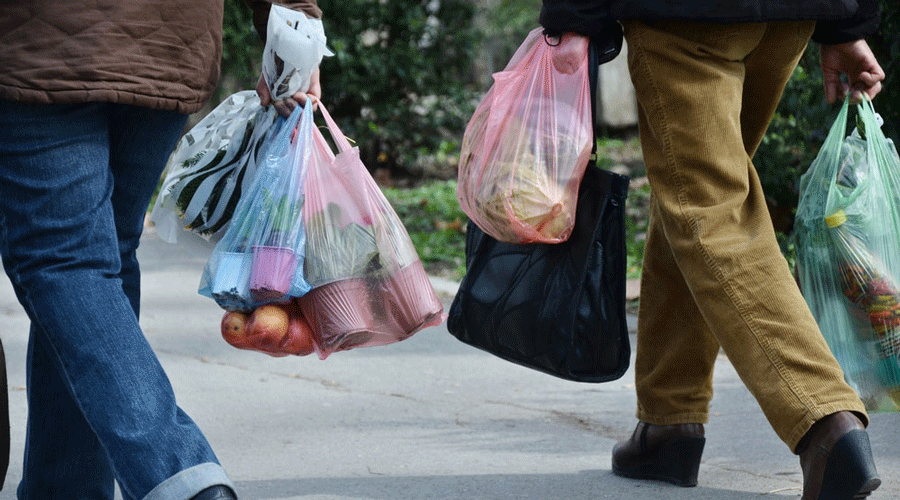Municipalities and municipal corporations across West Bengal have imposed over 8,000 fines on users of single-use plastic since July 1, when the ban on such items came into effect, said a state pollution control board (PCB) official.
But the state’s largest civic body, the Kolkata Municipal Corporation (KMC), has not fined a single person yet. Swapan Samaddar, mayoral council member in charge of the KMC’s environment department, told The Telegraph on Tuesday that the KMC would start imposing fines “later”.
“We have not started imposing fines yet. We are still relying on awareness campaigns. We will start imposing fines after some days,” he said.
The use of single-use plastic has gone down to a large extent in the city since the ban came into effect. But the deadly plastic items have not disappeared.
An official of the West Benal Pollution Control Board (WBPCB) said on Wednesday: “Across the state, 8,172 fine challans have been issued by municipal bodies to those found using single-use plastic bags since July 1. A total of Rs 12,10,614 has been collected in this period.”
The ban on plastic bags less than 75 microns in thickness became effective from July 1 across the country.
The state environment department issued a notification on June 27 imposing a ban on “the manufacture, import, stock, distribution, sale and use of plastic carry bags made of virgin or recycled plastic of less than seventy-five (75) microns in thickness”.
The manufacture, import, stock, distribution, sale and use of earbuds with plastic sticks, plastic sticks for balloons, plastic flags, candy sticks, plates, glasses, straws, wrapping film around sweet boxes, cigarette packets, plastic or PVC banners with a thickness of less than 100 microns are also banned.
A seller found using a plastic bag less than 75 microns in thickness can be fined Rs 500 and the buyer Rs 50, said a KMC official.
There are 128 urban local bodies (ULBs) in Bengal. Seven are municipal corporations and the rest are municipalities.
The ULBs are tasked with ensuring the banned items are not in use and the state PCB is responsible for cracking down on units manufacturing such items.
A WBPCB official said they had written to Haldia Petrochemicals and IVL Dhunseri Petrochem Industries — two West Bengal-based companies that supply raw materials to units manufacturing plastic products — to not supply raw material to any unit producing banned items.
